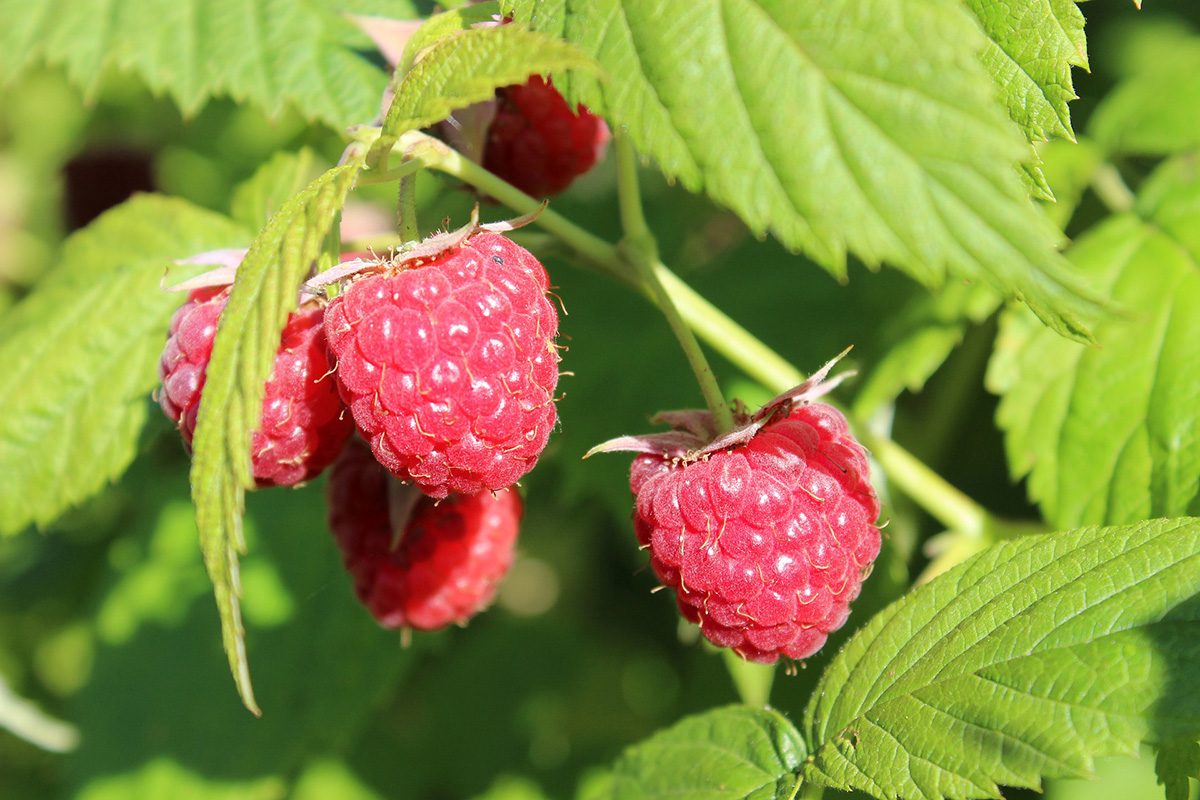
By Sarah Browning, Extension Educator in Lancaster County
Raspberries can be divided into two groups, summer-bearing and fall-bearing. Fall-bearing plants, sometimes called “everbearing” raspberries, are increasingly popular because they can be managed to produce one large fall crop, making pruning easier.
Everbearing raspberries are able to produce two crops a year because they produce flower buds on both old and new canes, but by pruning out all canes every year, you create one large fall crop.
Common everbearing raspberry cultivars available to the home gardener include those below.
RED
• ‘Autumn Bliss’ — early ripening; large flavorful fruits; soft fruit texture
• ‘Autumn Britten’ — early- to late-season ripening; very large fruits; firm and flavorful; better fruit quality but lower production than Autumn Bliss
• ‘Caroline’ — early- to late-season ripening; very productive; widely adapted cultivar
• ‘Heritage’ — mid- to late-season ripening; medium-sized fruits; good color, flavor, firmness and freezing quality; vigorous plants
• ‘Redwing’ — mid-season ripening; large soft fruits with good flavor; moderate yield
YELLOW
• ‘Anne’ — mid- to late-season ripening; largest and best-lasting yellow raspberry; pale yellow fruits
• ‘Fall Gold’ — early-season ripening; medium size; excellent flavor; moderate yield
DORMANT SEASON PRUNING
Manage your everbearing raspberries to produce one large crop each year by pruning plants in late winter (early- to mid-March) while the ground is frozen and before new growth has begun. By hand, rotary mower or other mechanical device, remove all above ground growth leaving a 1- to 2-inch stub for each cane. In August or early September, fruiting will occur on the current season’s growth.
FOR MORE INFORMATION
Nebraska Extension NebGuide, “Growing Raspberries,” (G1580) is available online at http://go.unl.edu/raspberry